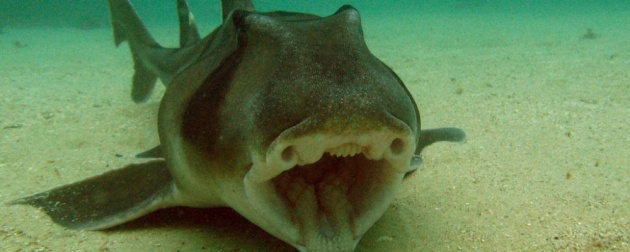
Noise generated by construction activities and gas exploration could be negatively impacting sharks off the coast of Western Australia, researchers say.
Known as anthropogenic noise, the constant underwater din generated by human activity could destroy sensory tissues in marine animals, seriously impairing their ability to hear and detect changes in hydrodynamic pressure. Noise could also cause chronic stress, negatively impacting behavior and sensory perception.
Although noise pollution could hurt many different kinds of fish, researchers are particularly worried about sharks, which are especially sensitive to low frequencies. Furthermore, non-migratory shark species stay in a single location for most of their lives, leaving them particularly vulnerable to the long-term impacts of noise pollution.
Researchers from the University of Western Australia Oceans Institute and School of Animal Biology have launched a study to investigate the short- and long-term effects of noise pollution on sharks. The team is using electrophysiological techniques to asses sound sensitivity in sharks in a laboratory setting.
"We feel there is a dire need and a responsibility to fill a large knowledge gap, to inform management practices and policy and broaden the regulatory framework to include the effects of noise pollution on a wider range of marine species, including sharks and their relatives," wrote Lucille Chapuis a graduate student at the university, in a piece originally published on phys.org.



